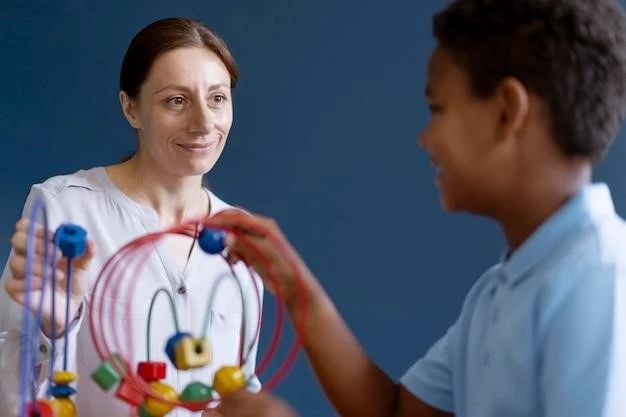Introduction to Microcephaly, Primary Autosomal Recessive
Microcephaly or reduced head circumference results from a multitude of abnormal developmental processes affecting brain growth and/or leading to brain atrophy. Autosomal recessive primary microcephaly (MCPH) is the prototype of isolated primary (congenital) microcephaly, affecting predominantly the cerebral cortex. For MCPH, an accelerating number of mutated genes emerge annually, and they are ...
Definition and Overview
Microcephaly or reduced head circumference stems from abnormal developmental processes that hamper brain growth, often linked to autosomal recessive primary microcephaly (MCPH). MCPH is a rare neurodevelopmental disorder typically characterized by congenital microcephaly and intellectual impairment without additional brain malformations. Understanding the genetic underpinnings and clinical implications of MCPH is crucial for precise diagnosis and tailored management.

Characteristics of Autosomal Recessive Primary Microcephaly (MCPH)
Autosomal recessive primary microcephaly (MCPH) is a neurodevelopmental disorder. It is characterized by two principal features, microcephaly present at birth and nonprogressive mental retardation. The microcephaly is the consequence of a small but architecturally normal brain, and it is the cerebral cortex that shows the greatest size reduction.
Key Features of MCPH
Individuals with Autosomal recessive primary microcephaly (MCPH) typically exhibit microcephaly at birth alongside non-progressive mental retardation. The condition manifests as a small yet structurally normal brain, with the most prominent reduction in the size of the cerebral cortex. Understanding these key features is pivotal for accurate diagnosis and appropriate management.
Genetic Basis and Inheritance
Autosomal recessive primary microcephaly (MCPH) is primarily inherited in an autosomal recessive manner, meaning that an individual must inherit two copies of the mutated gene ー one from each parent, to manifest the condition. MCPH is genetically heterogeneous, with several genes identified as contributing factors. Understanding the genetic basis and inheritance pattern of MCPH is crucial for accurate diagnosis and genetic counseling.

Clinical Presentation of MCPH
Autosomal recessive primary microcephaly (MCPH) presents with non-progressive mental retardation alongside microcephaly at birth. These features are linked to abnormal brain development, requiring early diagnosis and specialized care.
Neurodevelopmental Symptoms
Individuals with Autosomal Recessive Primary Microcephaly (MCPH) may exhibit neurodevelopmental symptoms such as non-progressive mental retardation and challenges in cognitive development. Understanding these symptoms is essential for early intervention and tailored support.
Physical Features
Physical features of Autosomal Recessive Primary Microcephaly (MCPH) include a significantly reduced head circumference at birth, reflecting abnormal brain development. Some patients may exhibit a narrow, sloping forehead, mild seizures, attention or behavior issues, and shorter stature compared to their peers. Recognizing these physical attributes aids in diagnosing and providing targeted care for individuals with MCPH.
Diagnosis and Evaluation of Autosomal Recessive Primary Microcephaly
Diagnosing and evaluating Autosomal Recessive Primary Microcephaly (MCPH) involves assessing neurodevelopmental milestones, physical examination including head circumference measurements, genetic testing to identify mutated genes, and neuroimaging studies. Early detection and accurate diagnosis are crucial for appropriate management.
Diagnostic Criteria
Diagnosis of Autosomal Recessive Primary Microcephaly (MCPH) involves evaluating neurodevelopmental milestones, conducting physical examinations including head circumference measurements, genetic testing to identify mutated genes, and neuroimaging studies such as MRI or CT scans. These criteria are essential for accurately diagnosing MCPH and determining appropriate management strategies.
Imaging Studies and Genetic Testing
In diagnosing Autosomal Recessive Primary Microcephaly (MCPH), imaging studies like MRI or CT scans help assess brain structure, while genetic testing identifies specific mutated genes contributing to the condition. These studies aid in confirming MCPH diagnosis and guiding appropriate management strategies based on individual genetic profiles.
Management and Treatment Approaches for MCPH
Outlined here are management strategies and treatment approaches for Autosomal Recessive Primary Microcephaly (MCPH), including early intervention, specialized care, and tailored support to address neurodevelopmental and cognitive challenges associated with the condition.
Multidisciplinary Care Team
Management of Autosomal Recessive Primary Microcephaly (MCPH) requires a multidisciplinary care team composed of specialists such as pediatric neurologists, genetic counselors, developmental pediatricians, therapists, and educators. This collaborative approach ensures comprehensive care addressing the diverse needs of individuals with MCPH.
Supportive Therapies and Interventions
Supportive therapies and interventions play a crucial role in managing Autosomal Recessive Primary Microcephaly (MCPH). These may include early childhood intervention programs, educational support, speech and occupational therapy, behavioral interventions, and individualized educational plans. Engaging in these supportive measures can help improve outcomes and quality of life for individuals with MCPH.
Prognosis and Long-Term Outcomes in MCPH
Understanding the prognosis and long-term outcomes for individuals with Autosomal Recessive Primary Microcephaly (MCPH) is essential. Factors influencing prognosis vary, including the genetic basis of MCPH and the quality of life and social support available. Tailored care plans can significantly impact long-term outcomes for individuals with MCPH.
Factors Affecting Prognosis
Several factors can influence the prognosis of individuals with Autosomal Recessive Primary Microcephaly (MCPH). These factors include the specific mutated genes involved, the severity of cognitive impairment, the presence of associated conditions, and the availability of appropriate support services. Understanding these factors is crucial for determining the long-term outlook for individuals with MCPH.
Quality of Life and Social Support
The quality of life for individuals with Autosomal Recessive Primary Microcephaly (MCPH) can be significantly improved with access to adequate social support services and specialized care. Providing a supportive environment, tailored interventions, and access to community resources can enhance the overall well-being and quality of life for individuals living with MCPH.
Research and Advances in Understanding MCPH
Exploring the latest research and advancements in understanding Autosomal Recessive Primary Microcephaly (MCPH) provides insights into emerging genetic discoveries and current trends in treatment research. Stay informed about the evolving landscape of MCPH to enhance diagnosis and care strategies.
Emerging Genetic Discoveries
Stay informed about the latest emerging genetic discoveries related to Autosomal Recessive Primary Microcephaly (MCPH). Current research focuses on identifying new mutated genes influencing MCPH and understanding their role in neurogenesis. Keeping up with these discoveries can lead to enhanced diagnostic capabilities and potential targeted therapies for individuals with MCPH.
Current Trends in Treatment Research
Staying abreast of current trends in treatment research for Autosomal Recessive Primary Microcephaly (MCPH) is vital. Ongoing studies are focusing on novel therapeutic strategies, including gene therapy, stem cell research, and targeted interventions tailored to specific genetic mutations associated with MCPH. Keeping informed about these advancements can pave the way for more effective treatment approaches in the future.
Educational Resources and Support for Individuals with MCPH
Accessing educational resources and support is vital for individuals with Autosomal Recessive Primary Microcephaly (MCPH). Utilize learning tools for neurodevelopmental disorders and explore assistance programs and community organizations to enhance the educational experience and overall well-being of individuals living with MCPH.
Learning Tools for Individuals with Neurodevelopmental Disorders
Utilize learning tools tailored for individuals with neurodevelopmental disorders, including resources designed to support cognitive and developmental challenges associated with Autosomal Recessive Primary Microcephaly (MCPH). These tools can enhance educational experiences and facilitate personalized learning for individuals with MCPH.
Assistance Programs and Community Organizations
Discover assistance programs and community organizations dedicated to supporting individuals with neurodevelopmental disorders like Autosomal Recessive Primary Microcephaly (MCPH). These resources offer guidance, advocacy, and a supportive network for individuals and families navigating the challenges associated with MCPH.
